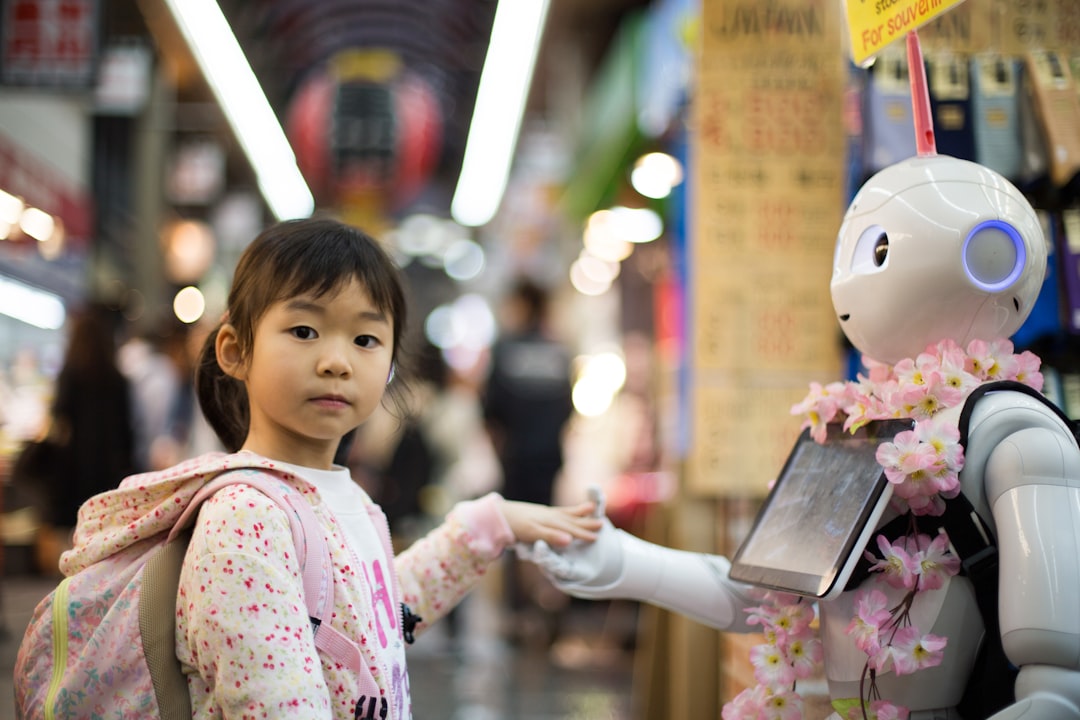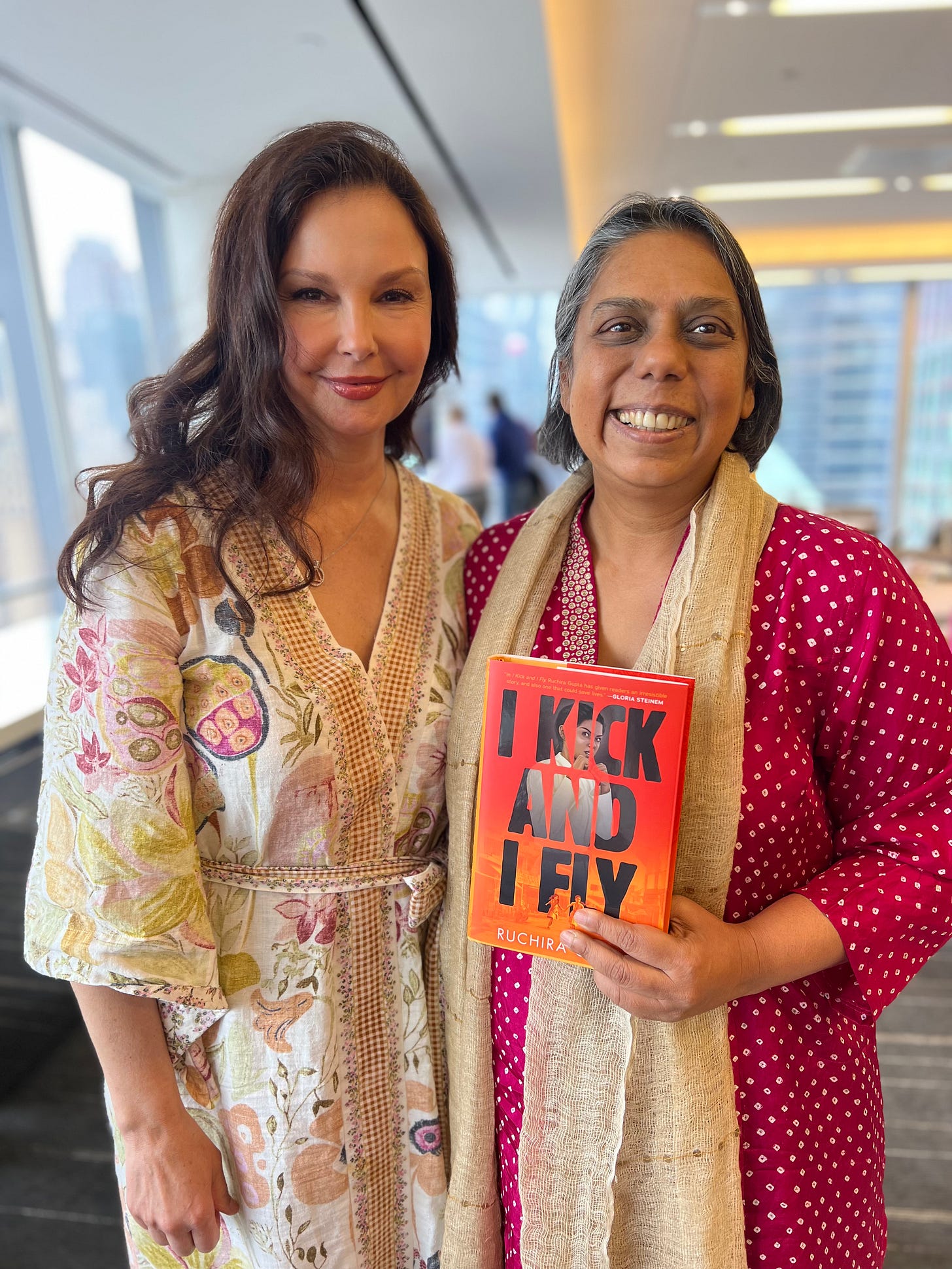Imagine that you meet a person on a dating app, and that you totally hit it off. They’re funny, witty, generous and the conversation flows so easily that it feels too good to be true. After what feels like millions of swipes, you’ve finally made a genuine connection with someone. You’re excited to meet, but when you do, it feels like you’re talking to someone else. And it’s not just that they’re nervous or that you feel awkward… it genuinely feels like a different person. That’s because it is! Or rather, you weren’t talking to someone else, you were talking to a chat bot. What feels like the plot of a 2050 depressing late-stage capitalism romantic comedy could already be happening to you, right now. AI is taking over job markets— it’s also also taking over dating apps.
I heard rumblings of chat bots quietly taking over our dating lives earlier this year when an app called CupidBot was introduced as a tool for straight men to trick women land more dates with women. “We focus on the dating lives of straight men because they suffer most from dating apps,” the CupidBot spokesperson told Vice, clearly having never spoken to a Black woman. “It takes immense time for the average man to scrape together even one date a month,” they continued. “Although CupidBot can be used by anyone, we've built it with the average man in mind.” So in other words because men are the “most disadvantaged,” (their words, not mine) in the dating app structure, they need to pay robots to talk to women for them. Why does this feel like it will worsen, rather than improve men’s abilities to grow and sustain relationships with women?

But men aren’t the only ones being targeted with these new technologies. In the last few weeks, I’ve seen a whole range of chat bots, pitching themselves to users of all genders, as “dating tools” for the average lonely single person. It seems like they’ve switched their offering to something a bit more gender-neutral, although it’s unclear what the breakdown is so far for this particular service.
All of these new apps popping up has led to several “spot the bot” articles to decipher if you’re talking to a robot or a person. Dating is hard enough. Do we really need to add one more thing to be vigilant about when we meet someone new? I already have a list of red flags like “has commitment issues” and “enjoys camping.” Do I now have to add “is maybe a chat bot” to my list?
I was asked to comment on this dating disaster on NPR last week, and I found myself oscillating between feeling compassion for those struggling with dating and sheer hopelessness about the future of the human race. On the one hand, I get the need for support. Many of us rely on our friends or family to help us navigate communicating and over-analyzing when we first meet someone. Many of my texts when I first talk to a new prospect are co-written by another woman (or several), so what’s the difference between asking a pal about dating advice or asking a bot? I started thinking about all the people who may not have friends they can rely on, or those who are neurodiverse or disabled, and might struggle when interacting with a stranger. Don’t they deserve some guidance even if it’s coming from a robot?
But even as I thought about all the potential people who could be helped by these tools, I couldn’t stop coming back to how I would feel if I learned that my first interactions with someone had been outsourced to a robot. Deception and distortions are already so common with dating, are we really going to give people more tools to catfish, not just their appearance, but their entire personality too?
And like with any algorithm or new technology, I worry about the bias that gets baked into it. When an acquaintance of mine tried one of the apps, and showed me the results, I was struck by the way that it seemed to obey and amplify gendered expectations. For my friend who was a male user, it took simple interests like cooking and basketball and turned them into competitive endeavors meant to signal status and masculine prowess. Instead of “I like to cook” the bot wrote wrote “I’m a master in the kitchen” and instead of “I enjoy basketball” it emphasized competitiveness and aggressiveness. I was impressed by the way it succeeded at making someone seem more attractive, but simultaneously worried about what kind of stereotypes it was perpetuating or even potentially exacerbating. I don’t think there’s anything wrong with men wanting to present their best selves on dating apps, but what if that doesn’t reflect who they actually are in real life? Will men feel like they need to live up to the image that their bot has created for them? And do women really want what bots think that they want?
If used well, artificial intelligence could be a powerful equalizer. It can allow people with dyslexia to make summaries without typos and lessen the difficulties that may come with writing and reading. It can come to the rescue of someone with ADHD who needs support synthesizing and processing information. I’ve even seen a beta version of ChatGPT do live photo description which would mean that visually-impaired people could more fully participate in the world. These tools have a phenomenal inclusive quality to them. And even though I’m repulsed by the idea of being scammed into flirting with a robot, what if this tool is allowing a person who is on the spectrum connect with more people and even find love?
We can’t deny that AI can have net positive effects especially for those who are marginalized, but just like any technology, its impact on humans is measured by how humans actually use it. Artificial intelligence is just as likely to help us break down inequality as it is to magnify it. Just look at the writer’s strike. It’s rooted in corporate greed and a handful of male executives hoarding the profits that hundreds of writers make them, but it’s also about creating a social contract between those who have power and those who don’t, to abstain from using artificial intelligence to erase an entire profession. Will the people with all our money use artificial intelligence to enhance writing, or replace writers altogether? When it comes to dating, will these tools be used to make dating easier, or will they erase the need for it all together?
These are big questions, and I don’t purport to have the answers but I’m dying to know what you think. What do you think about these controversial dating app chat bots? Does artificial intelligence make you feel optimistic about the future, or scared of its implications? Let me know in the comments below.
And before we say goodbye, there’s exciting events and projects going on in our community this week that I wanted to share them with you.
One exciting community update is that our friend and chronic illness advocate Nitika Chopra is having her annual event Chronicon this Friday in Brooklyn. It’s a beautiful celebration that gathers people who have chronic pain or disabilities and the people who love them. If you can’t make it in person because you’re immune-compromised or you can’t afford the trip, you can join remotely by buying a virtual ticket. And if cost is a barrier for you, Nitika also offers scholarships for those who need it. I’ve seen her work so hard on putting this together and I’m excited for everyone to get to experience it too.
Lastly, sex trafficking activist and friend of Airplane Mode Ruchira Gupta, just released the critically-acclaimed novel I Kick and I Fly about a young girl who triumphantly escapes the faith that so many poor, lower caste and homeless Indian girls face in a world that steals their innocence. As the founder of Apne Aap Women Worldwide, she has prevented thousands of girls and women from being bought and sold worldwide. If you want to support her work you can donate to her organization or buy her book from a local bookstore. I snapped this photo when she was in conversation with Ashley Judd for her book launch. Whenever I get to hear stimulating conversations and attend nourishing events, I always wish I could take you with me, so I’ll probably feature an interview with Ruchira in the near future. Until then, thanks for being a subscriber and I’ll see you this weekend! x
Liz





I'm pessimistic, but I don't know that this will fundamentally change online dating specifically. I fear that smooth talking chatbots will be used to manipulate people, but manipulating them into wanting to go on a date will just be one use case out of many (such as scams using them to convince people to hand over money).
I feel like online dating is already rewiring our brains to make us have more conventional, narrow romantic preferences that fit certain stereotypes, while providing us with an illusion of infinite partner choice and creating unreasonable expectations about finding the perfect person. In the short and medium term, AI will probably just make some or all of these things worse at the margins.
I have a hard time seeing this as anything other than a form of catfishing. It’s fine if someone wants to consult with others or even hire a coach to help communicate better, but outright outsourcing or plagiarizing is starting the relationship with deception and a betrayal of trust. It may be effective at getting a first date, but much like pictorial catfishing, that first date will crash immediately when the person’s personality and communication abilities don’t match the witty robot.